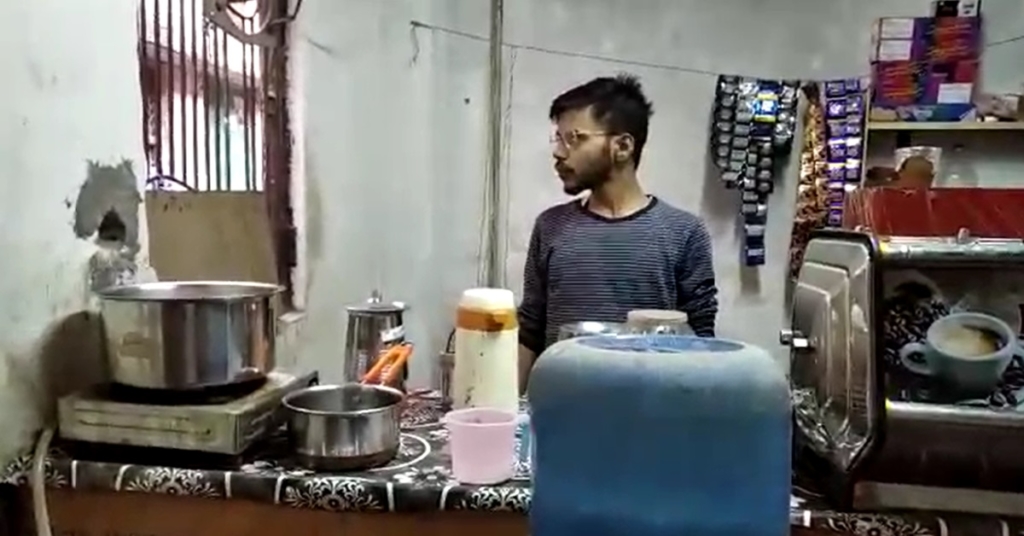
Lockdown Impact: Weavers forced to become tea sellers! Part-1 of our on-going series based on CJP's Purvanchal fact-finding mission examining the decline of the traditional weaving industry
08, Mar 2021 | CJP Team
The once thriving Banarasi weaving industry has come to a grinding halt in wake of the Covid-19 induced national lockdown. But despite the heritage status accorded to the traditional handloom industry that is a part of the Varanasi’s culture for more than a millennium, Banarasi weavers are struggling to make ends meet, mainly due to government apathy. Last October, when we started out fact-finding mission, our team came across this group of weavers who are now forced to sell tea!
“There is no market, nobody has money. It is this tea business that is just about keeping us afloat,” Mohammad Ziauddin of Bajardeeha Varanasi, told our team when we met him last year on October 30, explaining the reason behind converting a saree shop into a tea shop.
The irony that this man was forced to sell tea in Varanasi, the constituency of Prime Minister Narendra Modi who often recalls fond memories of having sold tea at a railway station, is not lost on anyone.
CJP ran a #CJPagainstHunger effort from March-July 2020 to help people during the Covid-19 induced lockdown. Determined to deepen associations with communities like Migrant Workers, Women led Urban Poor Households, and Urban Daily-Wage earners, we launched campaigns like #MigrantDiaries and #LetMigrantsWork. CJP also launched the #CJPfellowships to empower myriad marginalised communities. The Purvanchal Weaving Industry Fact-finding initiative aims to produce a report that will become a powerful analytical and advocacy tool further leading to programmatic grassroot initiatives to battle discrimination and division. Please Donate Now to help CJP reach more such communities across India.
“We were able to earn rupees 15-20 thousand before the lockdown,” Ziauddin reminisced about the pre-lockdown period. But now things are very different. “All of us who worked in weaving are out of work. We don’t know when work will resume, right now everything is shut, there’s just no work, no customer… Weavers are now forced to work as labourers,” he said.
“We are 12 people at home. The rest still weave, they get work for two days, but there no sign of work for the other four days,” says Ziauddin, adding, “If the market emerges again, we might get back to work otherwise, we will continue with this (tea shop).”
Nadeem*, a friend of Ziauddin and co-owner of the operation explains, “The subsidy for power looms has also been taken away. Now, they are charging 12 rupees for one unit!” He asks helplessly, “How will people be able to pay for that?” But that’s not all, electricity is being disconnected due to non-payment of dues, further pushing the weaving units and their employees into economic despair. Unemployment is on the rise.
“There is no weaving work. We are not doing anything,” says Samar* a young former weaver and employee of the saree weaving unit-turned tea shop, adding, “Somehow we are able to earn enough to feed ourselves.” Worried about the future he says, “We get only half the wages, this is our livelihood, we do not know what else to do.”
*Some names have been changed to protect identities on request.
Related:
How Purvanchal’s traditional weaving industry came undone










